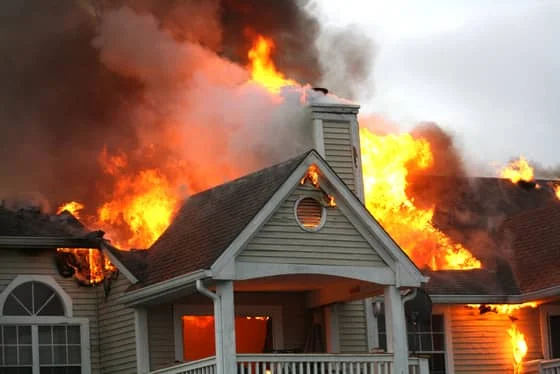Throughout history, clothes dryers have evolved from basic household appliances to become efficient machines that save energy, greatly improving people’s comfort and convenience. Despite being used in many homes around the world, the significance of comprehending the risks associated with their use and ways to prevent them has grown. Dryer fires are currently the most frequent kind of house fires related to laundry appliances in residential areas, accounting for approximately 15,000 cases each year. With these alarming numbers in mind, it is crucial for homeowners to perform routine maintenance and cleaning activities, such as regular checks and ensuring proper ventilation. Following these preventive measures will ensure that your clothes dryer functions properly and keeps your household safe.
The Harsh Truth About Dryer Fires
It cannot be denied that clothes dryers present a major risk to the safety of households. Let’s review these figures to gain a better grasp of the seriousness and risk of home fires resulting from dryers.
- Each year, firefighters across the country are called to approximately 13,820 house fires caused by clothes dryers.
- Dryer fires cause around 14,500 structural fires, 32 civilian casualties, and $192 million in direct property damage.
- The leading items first ignited in dryer fires include dust, fiber, and clothing, accounting for more than a quarter of these cases.
- 32% of dryer fires were caused by failure to clean while 27% was caused by mechanical failure or malfunction.
The numbers are staggering, showing the urgent necessity of implementing preventive measures and safety protocols in every household to reduce the chances of clothes dryers causing house fires.
Common Causes of Dryer Fires
So, what exactly causes dryer fires? Dryer fires pose a significant danger to households due to inadequate upkeep, defects, and the accumulation of lint, resulting in potentially hazardous circumstances. Homeowners can avoid dryer fires through learning about various causes and implementing preventive actions.
- Mechanical failure – like any other house appliances with electronic components, faulty wiring can lead to malfunctions and potentially cause dangerous house fires. It is crucial to have your dryer checked periodically to ensure that electronic parts are still functioning properly. Perform routine maintenance and check if repairs are needed.
- Lint Buildup – tiny fibers from clothes detach and accumulate over time in the dryer’s lint trap and vent duct. Such accumulation can clog the ducts and obstruct airflow, causing the clothes dryer to potentially overheat since lint is highly flammable.
- Crushed Vents – pushing your clothes dryer too close to the wall can cause the exhaust vents to get bent or crushed. If this happens, lint and warm air can get trapped inside the duct, potentially starting a fire.
- Combustible Chemicals – when clothing and fabrics with flammable chemicals are put in the dryer at high temperatures, residues can ignite. These substances, commonly present in household products like detergents and olive oil, can adhere to textiles and present a notable fire hazard.
- Improper Use – avoid using the dryer for anything that is not intended to be dried and placed in it. These items include foam, rubber, plastic, and other combustible materials that are not suitable for high temperatures. They can ignite under intense heat and ultimately lead to a dangerous house fire.
How to Prevent Dryer Fires
Countless properties suffer damage each year due to fires caused by clothes dryers, many of which could have been prevented with proper use, routine cleaning, and maintenance. The key to preventing these devastating situations includes understanding what causes dryer fires, as well as implementing practical steps that will ensure household safety everywhere.
Use Lint Filter on Your Dryer
Always use a lint filter while using your clothes dryer to lower the risk of a fire. Using a lint filter will ensure efficient functioning of your dryer and significantly reduce the risk of a fire every time it is used.
Regularly Clean Out the Lint Trap
Prior to using your clothes dryer, be sure to inspect the lint trap for any accumulation of lint. Clean it every after use to ensure all residue is thoroughly removed. Beware of any sounds or smells that may signal a defect and contact a professional technician for an inspection if you encounter any issues.
Inspect the Vents and Ducts
Make it a habit to inspect your dryer’s vents and ducts regularly for any tears or damage. Clean clogged ducts and replace parts that seem compromised. Learn to spot common signs of clogged vents including burning smell, dryer getting hotter than usual and extended drying periods.
Avoid Overloading
Stuffing your dryer beyond its recommended capacity can result in a hazardous house fire caused by limited airflow, mechanical stress, and overheating. To prevent this, ensure you follow the manufacturer’s instructions on load capacity and proper handling.
Annual Maintenance
Make an appointment annually with a skilled technician to ensure your clothes dryer is functioning effectively. These experts are able to detect problems that have a high potential to cause fires and work to resolve them before they become severe issues.
Conclusion
Dryer fires are considered a major threat to the safety of households. However, understanding the primary causes of dryer fires and acquiring knowledge on how to avoid them can ultimately reduce the risk of these hazards. Consistently cleaning the lint trap, keeping the venting system in good condition, and following the load capacity guidelines from the manufacturer can decrease the risk of fires in households. In addition, adhering to these preventive measures can promote a safer living environment for homeowners and their families. By following these safety tips, homeowners can relax and fully appreciate their homes without fearing potential hazards.

